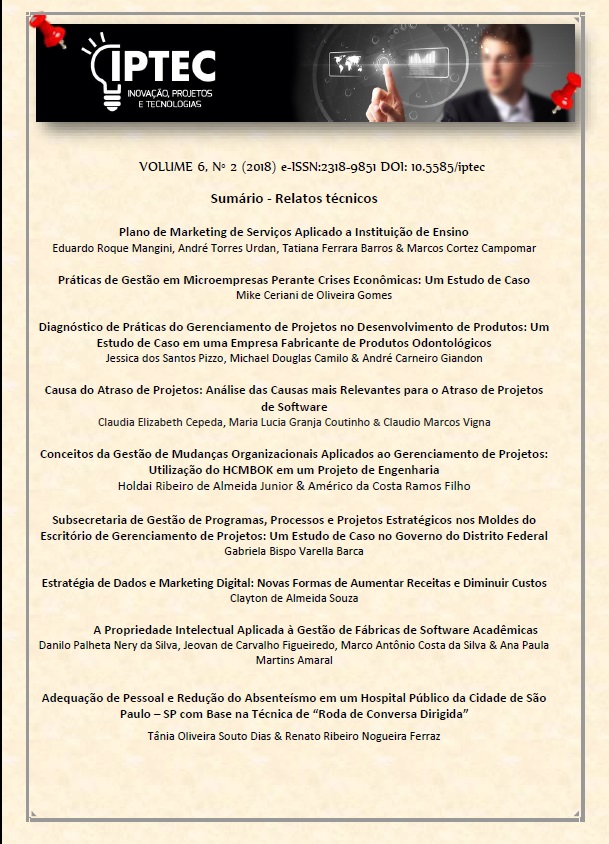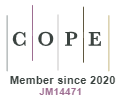Adequacy of Staff and Absenteeism Reduction in na Public Hospital Reception Located at São Paulo City – Brazil With Basis in the Technique of "Directed Conversation Circle"
DOI:
https://doi.org/10.5585/iptec.v6i2.112Keywords:
Health Management, Conversation Wheel, Public Health Service, People ManagementAbstract
Although the attributions and obligations of hospital staff are described in contract, high absenteeism, lack of identification, inadequacies in uniform and lack of courtesy in attendance, were commonplace situations. Complaints registered by users of the Service and staff from other departments were common, especially related to high absenteeism, which greatly impaired the functioning of other Hospital sectors. After conducting a situational diagnosis, the reception employees were provided with a device foreseen by National Humanization Policy, called "Directed Conversation Circle", aiming to promote significant improvements in work processes through open listening, information provision and clarification, and proposition of group ideas valorization, emphasizing the collaborators commitment with the Mission, Vision and Institutional Values. At the opening of training, a reception was started based on the open listening of employees. Next, the attributions, rights and employees obligations were discussed, as well as their important relation with Institutional mission. Finally, a check list was presented, initially developed to identify possible nonconformities in absenteeism and correct use of uniform and badge, and that would be used in three months that would follow the training. After device application to employees of three hospital receptions, there was a considerable reduction in absenteeism rate, and the use of uniforms and badges became a practice adopted by the great majority of workers. Such changes of conduct have resulted in significant improvements in work processes. Factors such as receptionists behavior in situations of conflict, as well as the professional attitude, could not be evaluated in the present report. The implantation of new work model led to a significant improvement in service performed by Institution sectors evaluated in this brief report. Compliance with the rules set forth in the employment contract evidenced the tendency to escalate the quality of services provided. New trainings and evaluations that include other issues and sectors can contribute to getting as close as possible to the level of excellence that is expected in a healthcare service.
Downloads
Downloads
Published
How to Cite
Issue
Section
License
Copyright (c) 2019 Tânia Oliveira Souto Dias, Renato Ribeiro Nogueira Ferraz

This work is licensed under a Creative Commons Attribution-NonCommercial-NoDerivatives 4.0 International License.







